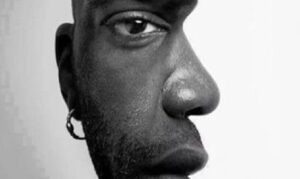
Time and time again, we hear that what we learn at schools and universities are facts, known facts. What we don’t learn at school are life skills such as imagination, problem solving, and goal setting. Moreover, schools often bombard us with logic, disregarding students’ emotional well-being, never preparing us for the real world, which is full of stress, deadlines, and other negative events which are sure to happen to all of us during our lifetime.
As such, many experts propose a new curriculum for schools, that includes money management, health and dieting, and a hand on approach to learning rather than an outdated classroom setting. With this in mind, I too want to propose that Optimal Happiness should be taught in schools, as learning this essential skill will forever change our lives and society as a whole.
Why Schools Should Teach Happiness
In 2005, Harvard University conducted a study finding that 4 out of 5 of its students were depressed and nearly half of them were so stressed they could not function [1]. This study went forward to say that people who make it into Harvard usually know that they are set for life regardless of how well they perform after this point. And yet, despite this knowledge, the pressure to study, learn, and make it in life negatively affects them emotionally for years to come. And these students are considered being the brightest, most connected, and the elite of the future generations, likely to assume many of the highest roles in the future world order. So, if they start from such a low emotional point, what does it say about how they will see the world after their graduation and for when they have to make major decisions in their respective positions?
It is clear that being negative in the past does not necessarily mean that they will learn how to be happy in the future. In fact, it is more likely that the past will predict the future for a significant part of these students, negativity affecting their worldview in a number of different parts of lives.
A similar tendency is also observed in other less prestigious universities and later at the workplace, where a significant part of students and the workforce are overworked, dissatisfied, negative, and depressed. In turn, this reflects on our whole society and how we behave as a species on a global level. Respectfully, if we could teach emotional intelligence and happiness at schools, we can address a significant part of that negativity, making people’s lives more enjoyable, interesting, and lively making the world as a whole a better place to live for the rest of us.

Pros and Cons of Education
Today, the job market is over-saturated with people who have university degrees, to a degree that companies almost don’t consider young professionals who don’t have some sort of diploma to their name. At the same time, the value of these degrees are in question, since they provide few life skills and a lot of information that students learn during these years they later discard in their personal and professional lives, making us question the pros and cons of our certificates. Specifically, the pros of a degree are:
- My thesis helped to prepare me for writing a book: I never would be able to write my book, if I didn’t first write my university thesis, which at that time seemed to be a very hard task, until I actually tried to write a book, which took me 6 years to complete.
- Meeting students, exchange programs, and parties: I met many interesting people and learned a lot from them. Many of them are my friends to this day. I attended many great student events, including an exchange program abroad (Erasmus), and parties, which I would never attend if I was not studying. I find all these experiences priceless, however; they were never part of my curriculum.
Still, for all the benefits that this education brought me, I wonder about its costs:
- Time wasted: I wasted many years of my life learning things that I would never apply in my career or life. This goes in line with conclusions of Ken Robinson, author of Creative Schools and famous TED Talks speaker of “How Schools Kill Creativity “, who stated that 63% of students are bored and stay in education because they think they need a degree, while being dissatisfied with the whole process.
- Tuition fees: Especially in the US, 2/3 of students are left in debt for years after finishing their education, with debt being one of the most detrimental things towards our future emotional well-being.
- Value of a degree: In many companies I applied for, they wanted to know that I have a degree, but rarely if ever they wanted to see it. Majority of their subsequent interview questions were about things completely unrelated to my education.

How Happiness Would Fix Everything
Yet, there is light at the end of the tunnel, with optimistic students reporting to be healthier, having more friends, and having better grades in schools. Later, they assume better career positions and achieve more in life. Their positive worldview reflects in a “can-do” attitude towards their education, career, and life.
All-in-all, happiness drives the world in the right direction, making people’s lives better in the process, and if more people are happy, many problems that our society is facing today would be automatically solved. This is why we should teach happiness in schools.
Source:
[1] Shawn Achor (2018), The Happiness Advantage: How a Positive Brain Fuels Success in Work and Life.
[2] Ken Robinson PhD, and Lou Aronica (2016), Creative Schools: The Grassroots Revolution That’s Transforming Education.
















3 thoughts on “Why Optimal Happiness Should Be Taught In Schools”
Pingback: Read Books If You Want to Be Happy - Optimal Happiness
Pingback: How to be Alone and Happy?
Pingback: How Much Money is Enough For You to Lead a Happy Life?